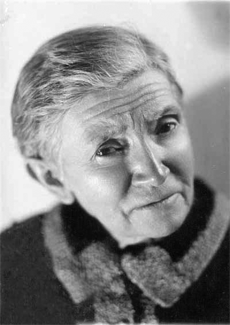
| Home |
| Recent additions |
| About Greenwood Road Books |
| Are you a bibliomaniac? If so, tell us! |
| How to order |
| Dancing worm of Turkana |
| Ephemera |
| Fossils and books |
| Illustrations |
| Juveniles |
| Letters |
| Maps |
| Notes |

Madeleine Colani (1866–1943).
Notice sur la préhistoire du Tonkin.
I. — Deux petits ateliers.
II. — Une pierre à copules.
III. — Stations hoabinhiennes dans la région de Phu-Nho-Quan (province de Ninh-Binh).
Bulletin du service géologique de l’Indochine, volume 17, fascicule 1.
Hanoi, 1928.
46 pp., 14 plates (including maps).
Only the first printed gathering (pp. 1–8, including half title page) was cut on this particular copy, the rest in their original, uncut state. Slight chip to the top right portion of cover. OCLC has seven different bibliographic records for this work, but notes only two copies in the U.S.
Ah, what makes this little printed delight interesting? On the half title page, an undated inscription in ink: “A Monsieur Deperet
Member de l’Institut
Hommage très respectons
M. Colani”
At the time of publication, Charles Depéret (1854–1929) was professor of paleontology at Université de Lyon. Depéret had supervised the doctoral disseration of Jacques Fromaget (1886–1956), entitled “Études géologiques sur le nord de l’Indochine centrale” and published in Hanoi in 1927. Fromaget soon became director of Service Géologique de l’Indochine, so Madeleine Colani was very sensitive to professional protocol, thanks to her involvement in L’affaire Deprat.
The Deprat Affair? Jacques Deprat (1880–1935) was accused of planting European trilobites in Vietnamese localities. After many investigations, and much tempête et le stress, sturm und drang, Deprat was dismissed and discredited. Colani had no small part in L’affaire Deprat, as Lia Genovese described in detail in her paper, “Madeleine Colani and the Deprat Scandal at the Geological Survey of Indochina”, published in 2011 in the Journal of the Siam Society. Colani was assigned paleontological cleanup, revising Deprat’s work on fusulinids (even though she could claim no special expertise with these extinct protozoans).
Colani was quite critical of Deprat’s earlier taxonomic efforts on fusulinids. According to Roger Osborne in his fascinating book The Deprat Affair: Ambition, revenge and deceit in French Indo-China (1999): “She wrote that of the three new genera proposed by Deprat only one was perhaps worth conserving, and of fifty-two new species, only eleven species, and eight forms were ‘not to be dismissed’. According to Colani, Deprat’s work in this area was, implicitly, inaccurate and almost worthless — though she did not go so far as to consider it fraudulent.” (p. 181) By the way, Deprat hired Colani initially part-time in 1914 for Service Géologique de l’Indochine, promoted to full-time in 1917.
Colani, ever paleontologically obsequious, was well aware of the reputation and influence of Charles Depéret, hence her cloying inscription to this publication. Depéret's student, Jacques Fromaget, eventually began to repair some of the damage done to Deprat. Deprat abandoned science altogether, adopting a pseudonym, Herbert Wild, in order to create several successful novels. Wild (a.k.a. Deprat) died in 1935 in an attempt to climb Pic Lézat (3,107 meters) in the Pyrénées. Deprat, Colani, Fromaget, Depéret, et al. would be fascinated by all of the attention L’affaire Deprat still generates. Field work eventually will rectify the true nature of Deprat’s trilobites. Were they truly cosmopolitan? Or really just a jealous trick?